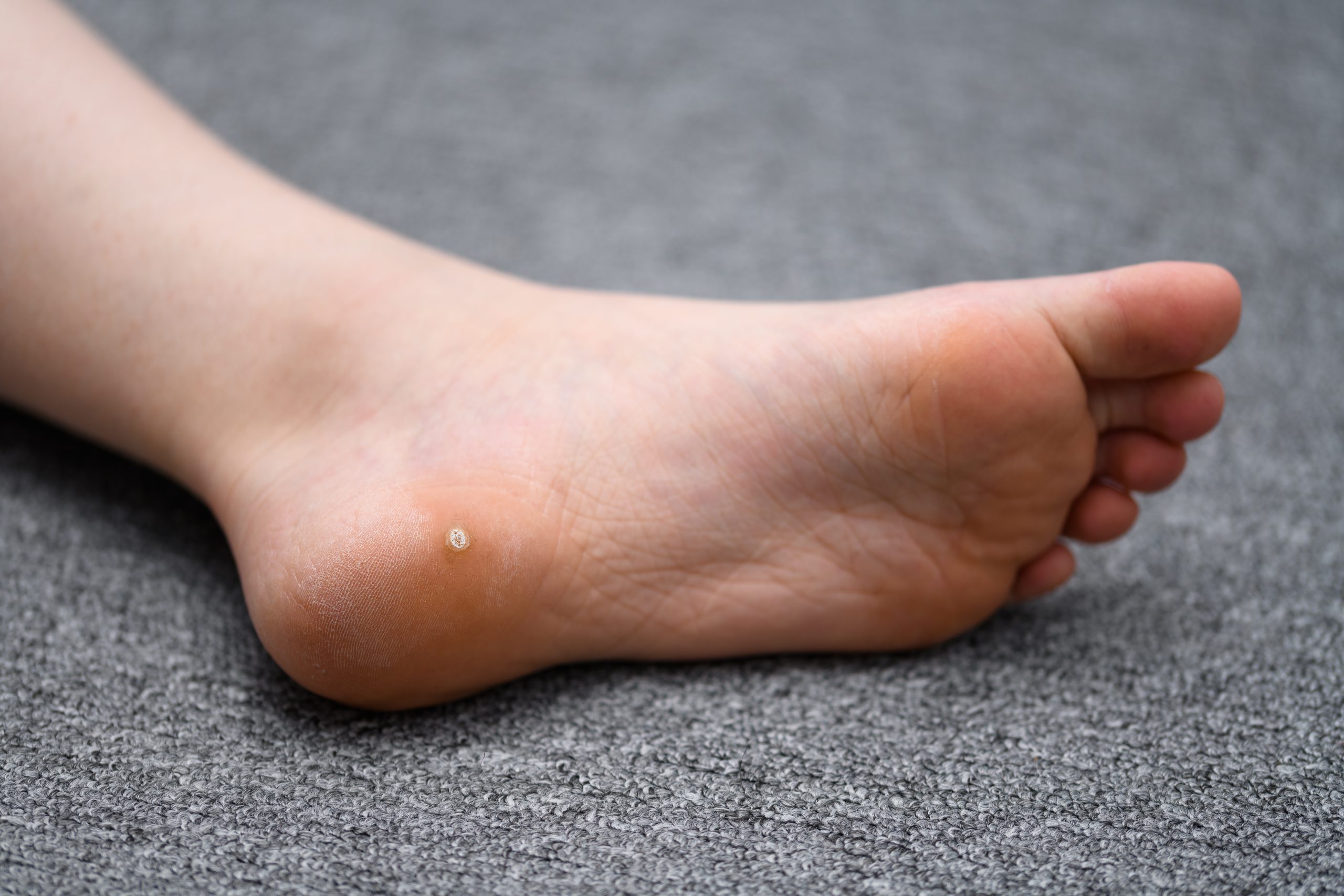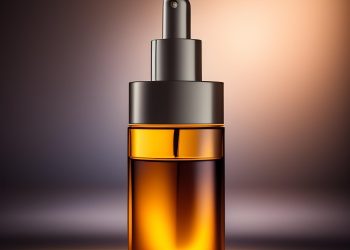National Eczema Association states that more than 31.6 million people in the U.S.A. suffer from some form of eczema. (1)
Eczema or dermatitis is a skin condition characterized by swollen, cracked- red skin with rashes and itchiness. Dry and sensitive skin is prone to eczema. (2)
Dermatologists agree that coconut oil can soothe the irritation of eczema and keep infection at bay. Coconut oil is extracted from the meat or kernel of the giant nut- coconut. Our body doesn’t have an inflammatory response to this oil. (3)
Clinical studies on coconut oil confirm its therapeutic compounds, nutrients, and vitamins. It is full of natural antimicrobial, fungicidal, antioxidant, and antibacterial properties.
It also contains lauric acid, vitamins E and K, and healthy nutrients that are essential for healthy skin.
In this article, you will learn the efficacy and uses of coconut oil for eczema relief.
Using Coconut Oil for Eczema or Dermatitis: What Research Says
1. Coconut Oil is a Great Moisturizer
Eczema victims suffer from itchy dry skin which needs moisturizing. The clinical study proved that coconut oil as a moisturizer is superior to petroleum jelly products and mineral oils. Your skin tissues can absorb coconut oil easily.
It softens and repairs the broken skins preventing the invasion of bacteria or fungi. This ideal moisturizer also brings ease to the irritation caused by eczema.
2. Coconut Oil is Nourishing
The difference between coconut oil and other animal-based oils lies in their fatty acids.
Animal-based fats comprise Long-Chain Fatty acids whereas coconut oil is made up of medium-chain fatty acids. (5)
Due to this reason coconut oil can easily penetrate the layers of skin tissue and repair the damage of eczema. It nourishes the skin and gives you supple, healthy skin.
3. Coconut Oil Relieves Itching
Itching is the worst thing that eczema brings along with it. Severe itching can lead to skin breaks and infections. Dry skin is prone to itching.
Coconut oil not only moisturizes the dryness of the skin but also brings a soothing effect on itching itself. In fact, coconut oil is a home remedy for relieving the itching caused by insect bites.
The application of coconut oil on eczema-affected skin can create a protective layer. This layer can save the sensitive area from itching triggers such as; dust, allergens, and other forms of pollutants.
Also Read: 10 Nourishing Home Remedies for Dry Skin & How to Use Them)
4. Coconut Oil Battles Bacteria
Did you know that along with breast milk, coconut oil is the only other natural source of Lauric acid? This fatty acid is abundant with antimicrobial effects. (6)
This makes coconut oil a potent agent to fight the bacteria and fungi of infections that complicate eczema.
5. Coconut Oil has an Immune-Modulating Effect
An allergic reaction is one of the primary causes of eczema. This happens when a weak immune system overreacts to certain allergens.
Doctors prescribe different steroid creams and immune suppression drugs to control the severity of inflammation and itching caused by an allergy. (7)
These immune-modulating drugs are not effective and have serious side effects. They run the risk of damaging the body’s natural immunity.
Coconut oil is a natural and safer source of immune-modulating properties to control allergic reactions and fight eczema.
6. Coconut Oil is Anti-Inflammatory
Coconut oil is a potent source of anti-inflammatory properties that work for eczema relief.
Eczema-prone people may develop skin inflammations for many reasons; severe cold, dust, heat, UV radiation of the sun, contact with rough surfaces, chemicals of skincare products, etc.
All these may trigger inflammatory responses that may lead to eczema. The application of coconut oil on the skin can effectively set off such inflammation. (8)
Also Read: 12 Anti-Inflammatory Herbs That You Should Know About
7. Coconut Oil is Safe
The colorless and pleasant scented Coconut oil is pressed from the edible, dried kernel of coconuts. In many tropical islands and coastal areas, coconut oil is used for cooking.
According to a study, these people enjoy excellent health and longevity compared to others. (9)
This natural oil is non-toxic, and its saturated fat isn’t harmful to the body either.
Allergic reaction to coconut oil is rare. It is very gentle and safe on tender and sensitive skins.
8. Coconut Oil is Cost Effective and Easily Available
Coconut oil is cheaper and easily available compared to other natural oils on the market. It’s like icing on the cake, given the many health benefits of this natural oil.
Methods of Using Coconut Oil to Treat Eczema
Listed below is a step-by-step process that you can follow at your convenience.
1. Direct Application of Coconut Oil
This method refers to the topical application of coconut oil. It is an extraordinary moisturizer for your eczema-affected dry skin. The skin absorbs the oil so well that it doesn’t leave a greasy effect.
Coconut palms grow in plenty in the warm tropical islands and coastal areas. Oil production takes place on a large scale too. In these areas, coconut oil almost always remains in a liquid form. Coconut oil solidifies only below 75F.
But, it is not difficult to apply semisolid oil to your skin. A teaspoon of coconut oil can readily melt into liquid on your palm absorbing the body heat.
The Process:
- Pour enough coconut oil on your palm.
- Apply it as a thin layer on eczema-affected areas, as you do with lotion.
- Let the skin absorb the oil completely.
- An after-bath application of the oil is more soothing to the damaged skin.
- For mild eczema repeat the process twice a day.
2. Coconut Oil Bandage
This process is effective to heal rough, dry, and broken skin caused by eczema. Coconut oil bandages on the affected areas can soothe and soften them in no time. It brings great relief from nighttime itching and gives us a sound sleep during eczema flare-ups.
You’ll Need:
- Coconut oil
- Cotton Pad
- Tissue paper
The Process:
- Take a tablespoon of coconut oil and warm it over the fire.
- Soak a cotton pad in the warm oil.
- Without squeezing place the oil-soaked pad over eczema affected spot
- Leave it there for 15-20 minutes.
- Wipe out the excess oil with tissue paper.
3. Coconut Oil Massage
Reddish, dry, and rough skins are the first symptoms of eczema. A coconut oil massage at an earlier stage of eczema can stop the condition from worsening further. Oil massage even reduces the number of dry eczema patches.
You’ll Need:
- Coconut oil 3-4 tbsp.
- Warm water
- Soap
The Process:
- On a cooking pot warm the coconut oil until it is hot,
- Remove the pot from the fire and let the oil cool down to mildly warm.
- Apply the oil as a layer on eczema-prone areas.
- Gently massage the oil in a circular motion.
- Allow 30 minutes and let the skin absorb the oil.
- Rinse off the oil with warm water and any mild soap.
Also Read: How to Use Apple Cider Vinegar for Eczema Relief
4. Coconut Oil Bath
Adults with violent eczema flare-ups all over the body can use this method. A refreshing warm water bath with a mix of coconut oil can reduce irritation and bring back the suppleness of healthy skin.
A few drops of any other therapeutic essential oil can add extra benefits to the process.
You’ll Need:
- Coconut oil 3-5 tbsp
- Lavender or tea tree essential oil 5 drops
- Warm water
- Soft towel (optional)
The Process:
- Add the coconut oil to the warm water.
- Pour your chosen essential oil into it.
- Allow some time for the oils to make a proper solution.
- An after-bath allows the water to air dry on your skin.
- Or you can dry yourself with a soft towel.
5. Coconut Oil in Diet
Allergic reaction to certain food items is one of the leading causes of eczema. Coconut oil contains natural immune-modulating properties that can control both allergies and flare-ups. You can consume coconut oil directly, mix it with a drink or use it for cooking.
The Process:
- Drink 1-3 teaspoonfuls of coconut oil daily
- Cook dishes with coconut oil.
- Mix a few teaspoonfuls of coconut oil with your tea or other drinks.
Note: Initially, you may experience loose motion for a few days. Don’t give up. Your body will resolve the problem itself. (10)
6. Oil Pulling
Oil pulling is a traditional technique to get rid of toxic elements from the body. It’s been used for centuries to cure acne, eczema, and other skin blemishes. (11)
This method is ideal to do in the morning on an empty stomach.
The Process:
- Put 1 tablespoon of warm coconut oil into the mouth.
- Hold it for 5 – 10 minutes
- Gently swish around the oil inside your mouth.
- Spit it out
- Rinse your mouth with saltwater.
- Repeat the process daily.
Note: Increase the amount of coconut oil as you get used to the process. Don’t swallow the oil as you put it in your mouth. This method is not applicable to children.
The Best Type of Coconut Oil for Skin
The oil industry introduced various types of coconut oil because of its popularity. Based on their purity, these different types of coconut oil fall into two major categories:
- Refined coconut oil.
- Unrefined coconut oil.
Refined oil goes through a long process of distillation in oil industries to make it light and germ-free. All these refining processes leave the end product with chemical substances.
These chemicals may pose to be harmful to the sensitive and damaged skin as that eczema.
We should treat eczema with unrefined or raw coconut oil which is 100% natural.
Pure virgin coconut oil is the best for eczema treatment. (12)
It is unrefined and has a strong nutty coconut smell and taste. But too much heat to achieve such taste and smell may result in the loss of beneficial bioactive agents in the oil.
That’s why you should be careful before picking up the oil bottles tagged ‘virgin coconut oil’ or ‘organic coconut oil’ in the store.
You can test different samples of virgin coconut oil and choose one with a mild flavor for skincare.
Tips and Precautions
- Children, pregnant and lactating mothers can use coconut oil without any risks and side effects. It is the safest form of oil for topical application or a message.
- You can replace all chemical-based moisturizers and lotions with coconut oil.
- Stop scratching the dry skin patches of eczema. This may further break the skin and lead to infections.
- Tight or silk clothes increase the itchy feeling. Avoid wearing such materials. Wear loose clothes for the skin to breathe and avoid irritations.
- Stop using harsh skincare products or toiletries. These take away the moisture of your skin and worsen eczema.
- You can avoid dish-washing, swimming, and frequent hand washing during your eczema hit days.
- Boost your immunity with vitamin D3 supplements. (13)
- Keep junk and oily food at a distance.
When to See a Doctor
It’s important to see a doctor if you experience any of the following:
- Excessive pain and inflammation of the skin
- Difficulty in getting enough sleep
- Impairment of daily activities
- Skin infection
- Impairment of vision [4]
Sometimes the open rashes may ooze out pus and form ugly crusts. Bacteria and fungi may further worsen the condition by causing infections. In such a case it’s recommended to visit a doctor for proper treatment.
Bottom Line
Eczema is not life-threatening, but severe itching can cause extreme discomfort. A poor immune system is the major cause of eczema. It overreacts to dust, specific allergens, and skincare products on your skin.
The result is flaring up of eczema. More often infants and children are the victims of this skin condition.
Coconut oil can relieve the symptoms of a mild eczema flare-up. You can use coconut oil in various ways for eczema treatment such as a moisturizer, cream, cooking oil, ointment, etc.
Read Next: 10 Home Remedies for Psoriasis





